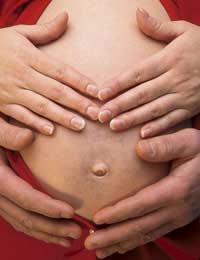Coping with the End of Your Fertile Years

While many men are able to father children well into old age, women’s fertility decreases with age and by midlife, women are no longer able to bear children. Those who have postponed motherhood may mourn their declining fertility and even those who’ve had families can feel a great sense of loss at the notion that their fertile years are behind them.
Women and Fertility
When they are young, many women assume that they can safely postpone motherhood until they get their careers in order, yet by age 35, a woman’s chances of conceiving are already diminishing. In generations past, most women had their children in their early twenties, but this is no longer the case for many. While it is certainly sensible to postpone parenting until one is emotionally and financially ready, the notion of a biological clock ticking away is based in fact.Fertility during Perimenopause
As women reach their mid to late thirties, their hormone levels begin to fluctuate, which can have a negative impact on the ability to conceive. By their mid-forties, most women are experiencing some symptoms of perimenopause, signifying that their reproductive hormones, oestrogen and progesterone, are rising and falling unevenly. These irregularities affect the menstrual cycle, and periods may become longer or shorter, with varying intervals between periods.Women in perimenopause have cycles in which they do not ovulate, and it is only in cycles that ovulation occurs that a woman is able to become pregnant. So while women can and do become pregnant during their perimenopausal years, conception is less likely than in previous years.
Fertility Treatments
Unlike a few generations ago, today’s midlife women have options available to them to help them conceive during midlife. Fertility specialists can now offer middle aged women a variety of treatments in hopes of helping them to conceive. Medications that stimulate the ovaries to release eggs, hormone injections, and in vitro fertilisation (IVF) are possibilities for some women. Fertility treatments increase the chances of giving birth to multiples, but for some women, fertility treatment centres offer their only chance of conceiving.Surrogacy and Adoption
Not all women are able to get pregnant, even with the help of modern fertility treatments. For these women, there are other paths to motherhood, including surrogacy and adoption. In surrogacy, a fertile woman is hired to be impregnated with either the husband’s sperm or donor sperm and after carrying the pregnancy to term, relinquishes the baby to the waiting parents.In some cases, a woman who is able to produce eggs but cannot carry a baby may choose to have the surrogate implanted with her fertilized egg, but it is more common for the infant to have a genetic ink to the surrogate.
Adoption is another option for women who desire children but are unable to conceive or carry a baby to term. Today’s adoption choices are plentiful, with adoptive parents having a variety of options available to them. Open adoptions allow birth mothers some access to the child through the years, which is appealing to many families. Adoption agencies and adoption lawyers can help prospective parents to sort out all of the details and arrange the situation that feels right for them.
Change is never easy, and the loss of fertility that is typical to midlife can be difficult for many women. Thankfully, those who want to be parents still may have the opportunity, thanks to medical science or the generosity of birth mothers who want their children to be raised in kind and loving homes.


Re: Parenting Teens in Midlife
(palimpsests). In the XIII-XV centuries in
Re: Parenting Teens in Midlife
Since manuscripts are subject to deterioration
Re: Parenting Teens in Midlife
written on the parchment was scratched out
Re: Loss of Confidence When You Reach Middle Age
At 61 I am ready to leave my job as an Early Years worker.It is physically and emotionally draining. I have…
Re: Coping with the End of Your Fertile Years
i think i am a ill-fated person of the country. my job is not suitable for me. my maximum colleagues misbehave…
Re: Loss of Confidence When You Reach Middle Age
I've had anxiety too and it is so debilitating and really knocks any confidence you had in you abilities. I…
Re: Loss of Confidence When You Reach Middle Age
june - Your Question:In a big rotten rut ,in the last 2 years ,hubby lost most of our money ,to debt he was…
Re: Loss of Confidence When You Reach Middle Age
In a big rotten rut ,in the last 2 years ,hubby lost most of our money ,to debt he was hiding ,mum Died…
Re: Keeping Your Relationship or Marriage Strong in Midlife
My husband thinks he can get a 25 year old!!
Re: Reassessing Relationships in Midlife
I don't understand what is going on with my husband he has suddenly become offensive and bad tempered and snapping at…